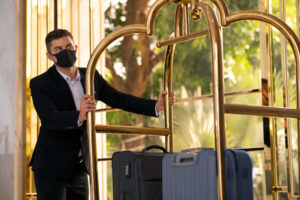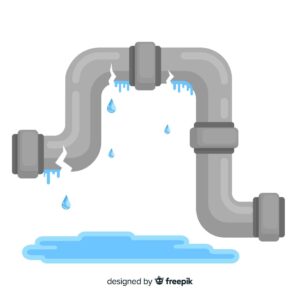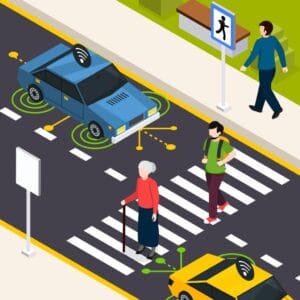With the chill of winter overstaying its welcome, you are probably dreaming of getting away to a warmer climate. It’s never too early to start planning your summer vacation. What better way to make memories than on a road trip to Florida. By keeping the following 10 safe driving tips for summer in mind, it can help you to hit the highway safely and enjoy a vacation with your friends and family.

1. Don’t Forget Your Safety Belt
Although wearing your safety belt is now required by law in all 50 states including Florida, it has been noted that one out of every seven adults was still not wearing their belt as of 2010. When you consider the fact that an adult is sent to the emergency room approximately every 14 seconds because of an injury related to a car accident, this number is quite alarming. According to the National Highway Traffic Safety Administration, thousands of lives could be spared on an annual basis by increasing the use of safety belts. Don’t be another statistic when you visit the Sunshine State, buckle up!
2. Restrain Children Properly
Just like adult seat belt laws, every state in the US has laws that require children to be restrained according to weight specified instructions. Most children have become quite accustomed to riding in a safety seat as car seat manufacturers have advanced their comfort levels.
In fact, they would likely let you know if they were not securely snapped in place before you started driving the car. Making sure the children are in the car seat is not a problem in most cases, but ensuring the car seat is installed properly is a serious issue. Proper installation of the car seat can reduce seat movement when an accident occurs.
In order to secure the child safety seat in the automobile properly, you must use the lower anchors and the tethers for the child safety straps. This system of anchors and tethers is called a LATCH system. Most modern vehicles will have anchors that are located in the gap at the back of the rear seat cushion.
The bottom lap strap should be fed through the rear of the child seat and the anchors are clicked into place. You must then tighten the straps to restrict seat movement. If necessary, enlist the assistance of someone who is able to tighten them securely. Most fire and police departments can help you properly install any type of child safety seat.
Don’t forget that the upper latch strap should also be secured as well. This latch strap feeds under the headrest of the rear seat and snaps into place to one of the anchors located in the rear of the seat. This strap should also be tightened to restrict movement.
If it is not possible to secure the safety seat adequately using the latch anchors or if you are operating an older vehicle, you can thread the three-point seat belt through the rear of the seat and click it in place. The belt should be tightened to remove slack and restrict seat movement.
3. Proper Vehicle Maintenance
Most Americans are not overly concerned about maintaining their vehicle, but you should schedule an inspection before taking a long car trip. A qualified mechanic can check for problems that are not easily detected so you avoid breaking down on the road.
The minimum amount of maintenance could include changing the oil and oil filter, checking the tires and tire pressure, checking washer fluid levels, and, if it has been a while, installing new wiper blades from a high-end brand like exalto. Be sure to check the engine hoses and belts and flush the coolant system, as well, to avoid problems.
4. New Tires
One of the most important considerations for vehicle safety is where the rubber meets the road. Prior to the time that you take a long trip, inspect the tires thoroughly for any damage or wear. If they have some age and are showing signs of wear, you should have them replaced. It is one of the more expensive parts of routine vehicle maintenance, but it could mean your life.
Also, don’t forget to check the spare tire for damage and proper air pressure. Make sure that the lug wrench and jack are in place.
5. Check the Lights
All of the lights should be inspected prior to the time that you go on any road trip. This would include the taillights, headlights, brake lights, hazard flashers and turn signals. Put the car in reverse to check the reverse lights as well.
6. Air-conditioning
If you are on a long car trip and the air conditioning fails, it can make for a miserable time. It also may contribute to a lack of focus and the potential for nodding off while you are driving. Have the air conditioning inspected by a mechanic before hitting the road?
7. Think about Renting
Whether you are flying to Florida as a visitor or you are a resident, it is important to have access to a vehicle that is ready for a long road trip. Not only could it prove to drive an unsafe car on the road, it may also use a lot of gas.
Read: Impressive Benifits of Autonomous Cars
8. Have An Emergency Plan
It doesn’t matter how careful you are, you may still experience unexpected problems. Not only could this include your vehicle breaking down, but it could also include an accident that would lead to physical injuries. Even if the problem does not occur with your vehicle, you may pass by someone who needs emergency assistance. Having an emergency kit at your disposal can help you overcome these problems. And having a 24-hour roadside assistance plan through your auto insurance or another auto club is incredibly beneficial for roadside emergencies. Program the phone number in your cell phone.
You will likely be able to find an appropriate emergency kit by doing a search online. They will vary in price and options from one to another. You can also compile your own emergency road kit, including warning flares, a hazard triangle, first-aid supplies, jumper cables, fix a flat tire sealant, some gloves, and a flashlight. Depending on the time of year that you are traveling, it might also be appropriate to bring extra warm clothing or a blanket. If you are planning a road trip in remote areas, bring an extra supply of water and food.
9. Be Conscious of Your Surroundings
You will be sharing the road with more than other automobiles. There are likely to be more motorcycles, bicyclists, pedestrians, and children out and about as well in the summer weather. They may not be paying attention to their surroundings, but if you watch out for them, it could save their life.
Being cautious of your surroundings also entails being mindful of vehicles stopped on the side of the road and slow moving cars. Most states will post highway signs reminding motorists of move over laws and minimum speed limits. Florida move over laws requires any passing vehicle to move one lane away from the stopped vehicles. This gives emergency response personnel adequate space to tend to the emergency at hand and not worry about passing cars being too close. Motorists who chose to drive below the speed limit may not always move right when they should. If you find yourself driving below the speed limit, be aware of the minimum speed limit and stay out of the left lane. This is for your own safety.
10. Be Cautious of Big Trucks
Although this tip is the last on the list, it is the most important. Watch out for big rigs because they are not always going to be able to see you. In some cases, you could be in their blind spot. Regardless of whether you are driving behind a large truck or if you’re passing it, be extra alert to what is taking place. Big rigs are notorious for shedding their tire treads. This can happen at any time. The debris could be launched at your vehicle at a high rate of speed with extreme force behind it and can cause severe damage to your car.
Perhaps the most dangerous manoeuvre that can be done is to pull in front of a large truck quickly and then apply the brakes. Semi-trucks require a lot of extra braking distance because of the extra weight that they are hauling. This is especially true if they are hauling a large load. This often happens when you come upon your exit quickly and don’t want to miss it. It is better for you to go to the next exit and turn around rather than making a foolish move that could cost you your life.











